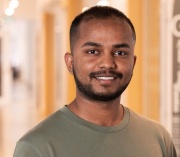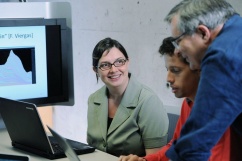The Institute for Big Data Analytics is a first of its kind in Canada. It has a mission create knowledge and expertise in the field of Big Data Analytics by facilitating fundamental, interdisciplinary and collaborative research, advanced applications, advanced training and partnerships with industry.
bigdata@cs.dal.ca
https://bigdata.cs.dal.ca
Director: Dr. Stan Matwin, Ph.D. CRC
Following his Ph.D., Stan was an Assistant Professor in the Department of Mathematics and Computer Science, Warsaw University. He joined University of Guelph in 1977, and Acadia University in 1980. Since 1981 at the University of Ottawa, as of 2011 a Distinguished University Professor (on leave). For many years in charge of graduate studies in Computer Science at the University of Ottawa, and a founding father of the Graduate Certificate in Electronic Commerce at University of Ottawa in 1999. Also affiliated with the Institute for Computer Science of the Polish Academy of Sciences as a Professor, Stan has worked at universities in the U.S, Europe, and Latin America. Recognized internationally for his work in text mining, applications of Machine Learning, and data privacy, author and co-author of more than 250 research paper. Former president of the Canadian Artificial Intelligence Association (CAIAC) and of the IFIP Working Group 12.2 (Machine Learning). Stan has significant experience and interest in innovation and technology transfer. One of the founders of Distil Interactive Inc. and Devera Logic Inc.









